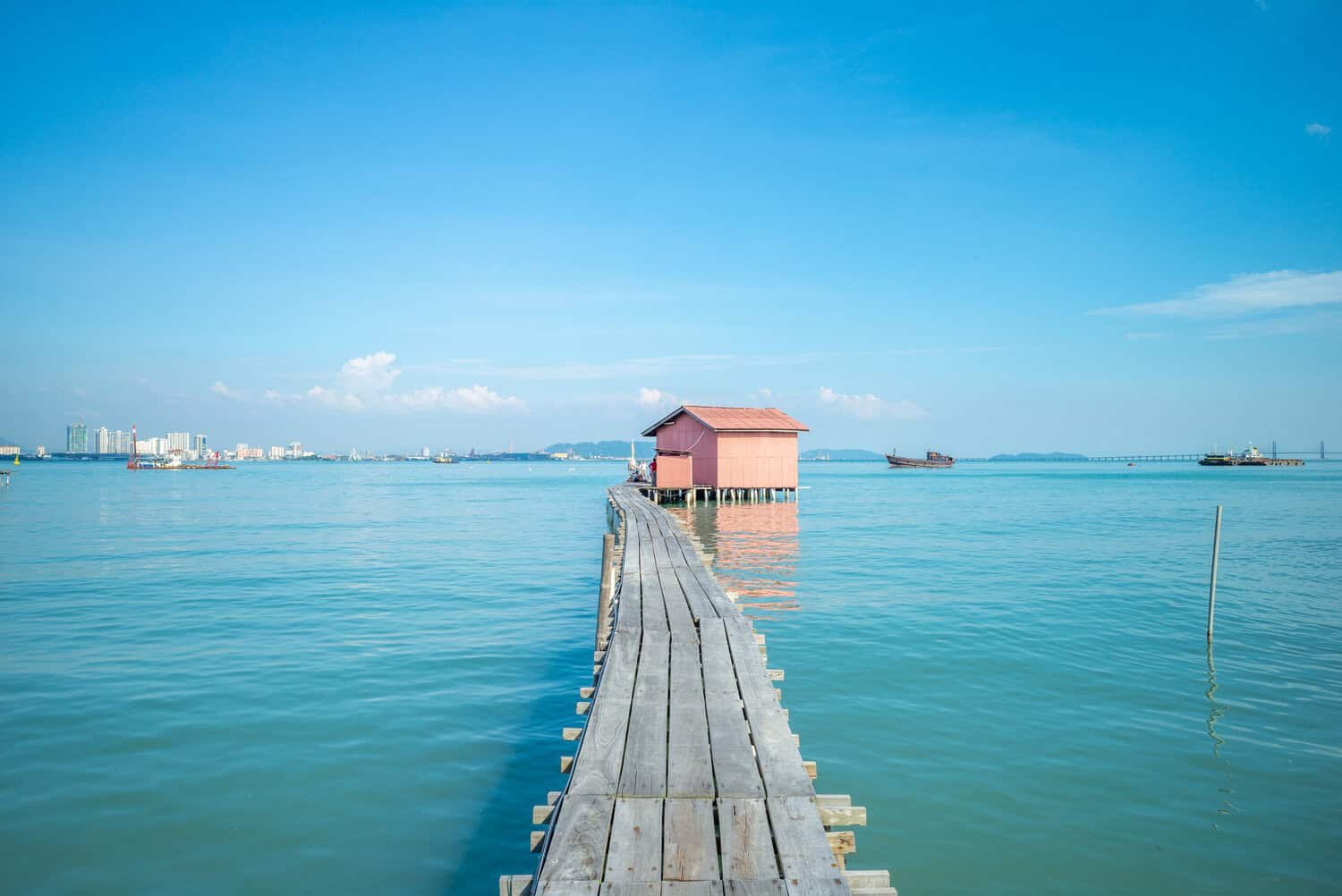If you Google “Chinese tourists,” you’ll find a bevy of articles calling them “too loud,” “too rude” or simply “the worst.” A little more web surfing and you’ll find examples of that behavior: vandalization of ancient temples, scuffles with airplane stewardesses and scalding water, and unnecessary brawls with the authorities.
And it’s not just English-language media that’s questioning the behavior of Chinese tourists — the domestic Chinese press has openly criticized many of the country’s travelers as “unruly” or “uncivilized,” and the government has banned some from traveling altogether.
The jury is still out on the question of blacklists as a tool to stop people from taking selfies atop ancient statues — but what do we make of all this? What makes the “Chinese tourist” such a notorious figure, anyway?
Rather than answer that question explicitly, we want to provide some context on the issue. After speaking with experts and doing some digging of our own, here are some key points to keep in mind.
Traveling is still relatively new for Chinese people
For one, most Chinese have never left the country. As of 2001, 98 percent of Chinese citizens didn’t own passports — today, 90 percent still don’t, says Wendy Min, a spokesperson for Ctrip, China’s largest online travel agent. Compare that to over 40 percent of Americans and well over 50 percent of Canadians and British citizens who are passport-holders.
The history of outbound tourism from China, a country that has historically discouraged its citizens from crossing its borders, is still relatively short. It wasn’t until after Mao Zedong’s death in 1978 that Chinese could exit the country for leisure, and not until 1997 that they could travel beyond nearby Asian countries, albeit only in a “planned, organized and controlled manner.”
Today, many continue to leave China for their first time, and considering the amount of growth the Chinese outbound tourism market is experiencing — it’s expected to double from 160 million in 2018 to a projected 400 million by 2030, according to the Chinese Outbound Tourism Institute (COTRI) — there will be many more Chinese first-time travelers going abroad in the coming years.

China just experienced an unprecedented period of growth
Not only are many outbound Chinese tourists traveling for the first time, but they’re armed with a new level of purchasing power unknown to previous generations.
To give some perspective, in 1978 China’s GDP per capita was just 155 current US dollars, making it nearly impossible for most people to travel overseas even if they had been allowed to. Today, China’s GDP per capita is 8,830 USD, affording the average Chinese citizen a lifestyle radically different from that of the ’80s and ’90s.
That lifestyle includes traveling, and via traveling, access to products that are either unavailable or heavily taxed and overpriced in domestic markets. Because of that, many Chinese tourists prioritize shopping as a major part of their trip, or even travel with the chief purpose of doing so. According to a 2017 report by Nielsen and Alipay, Chinese tourists spend almost twice as much on shopping as non-Chinese tourists do.
Related:
 Why China’s Self-Starter “Daigou” Personal Shoppers are Sending Luxury Brand Stocks TumblingArticle Oct 22, 2018
Why China’s Self-Starter “Daigou” Personal Shoppers are Sending Luxury Brand Stocks TumblingArticle Oct 22, 2018
According to Dr. Tony Tse, a professor at Hong Kong Polytechnic University’s School of Hotel and Tourism Management who does research on Mainland Chinese outbound tourism to Hong Kong, the main reasons Chinese tourists prioritize shopping are threefold: being able to purchase genuine products, saving money, and getting to show off their purchase when they come home.
The money they spend is making waves — one fifth of global tourism spending is made by Chinese tourists, according to a report last year by the United Nations World Tourism Organization.
China is the biggest tourist source market in the world, and many choose to travel in large groups
That amount of spending lines up with the tremendous number of Chinese tourists that travel every year, a group projected to make up over one fourth of the global outbound tourist market by 2030. But the influx of Chinese tourists and their money hasn’t just been a boon for the world economy — it’s also been a source of tension, often in places right next door.
Hong Kong, for one, called for the government to limit the number of Mainland tourists earlier this year after visitors from across the border pushed Hong Kong’s tourist numbers to record levels. The vast quantity of Mainland tourists — 51 million last year — cause congestion and disruption, according to residents.
There are also growing tensions between locals and Chinese tourists in Southeast Asia. Some of this is due to historical factors, some economic. In Cambodia, where the tourism industry makes up a hefty 32.4 percent chunk of the country’s GDP, Chinese visitors tend to spend their money on businesses owned by Chinese expats rather than Cambodians. Cries of overtourism also come from popular European destinations and even from within China itself.
Related:
 China’s Growing Role in Southeast Asia Reopens Old WoundsThe 40th anniversary of the Sino-Vietnamese War of 1979 went largely unnoticed in China, but not so in VietnamArticle Feb 20, 2019
China’s Growing Role in Southeast Asia Reopens Old WoundsThe 40th anniversary of the Sino-Vietnamese War of 1979 went largely unnoticed in China, but not so in VietnamArticle Feb 20, 2019
Chinese tourists’ preferred method of travel for the past two decades has been group tour packages, which can sometimes exacerbate the problem in destinations that aren’t suited for large groups.
For example, last year in Cambridge, the historical British university city of narrow streets and a modest population size, residents called for placing limits on the size of Chinese tour groups because of growing congestion.
This method of tourism makes sense for many Chinese travelers though, especially for first time travelers and people above 50 years old, says Min. They choose to travel in package tour groups “for convenience, ease of application, [and] some would factor in cost”, she says, pointing out that travel visas can sometimes be acquired for free when traveling with a package group, Russian visas being an example.

Practicality aside, group travel also has roots in the history of mainland tourism. Following the economic reforms of the ’80s, package tour groups were one of the only ways Chinese citizens could exit the country for leisure, and the style of travel has persisted as a go-to choice for many.
Chinese aren’t the first tourists to be labeled as undesirable
It wasn’t too long ago that American tourists were viewed as unwanted and uncultured, earning themselves the label “Ugly Americans” for their apparent ignorance and ethnocentric behavior. Brits were named by some surveys back in the 2000s as the world’s worst tourists for their supposed drunk fits and rowdiness.
That is to say, the crown of “worst tourist” has been passed around, and given that Chinese tourists are the newest and biggest group on the scene, it’s not a surprise they’ve claimed the title in recent years.
And just as not all Brits were drunken louts and not all Americans were obliviously arrogant, not all Chinese are “bad” tourists. “Most Chinese tourists are very polite, the ones we see in the media are the few exceptional cases,” says Emily Cheung, Founder and CEO of STW Innovation Company Limited, which provides young Chinese people with independent travel tips abroad.
And things are changing
“Chinese people, especially the young generations, are transforming, they are traveling by themselves rather than following group tours,” continues Cheung. “Over 70% of Chinese travelers traveling abroad are now choosing to go independently, according to some surveys. Adventure and cultural travel has no doubt become increasingly appealing to young, affluent Chinese travelers. As China’s number of outbound trips aboard surpassed 150 million in 2018, more travelers have been seeking ways to stand out among their friends by embarking on uncharted territory, they are looking for experiences.”
Related:
 Post-Gaokao Travel Up 500% as China’s Students Relieve Exam StressMany of the 10 million plus students who sat last weekend’s exams are keen to get away from it allArticle Jun 12, 2019
Post-Gaokao Travel Up 500% as China’s Students Relieve Exam StressMany of the 10 million plus students who sat last weekend’s exams are keen to get away from it allArticle Jun 12, 2019
Indeed, Cheung points out that most of China’s outbound travel growth is being driven by millennials “who not only travel more but also travel differently.” She admits that “a lot of miscommunications and misunderstandings have happened via people traveling overseas” in the past, but believes with better cultural education and with a new wave of young, more culturally aware tourists heading out from China, and that the “next generation will be even more sophisticated travelers.”
All images: Thanakrit Gu



















